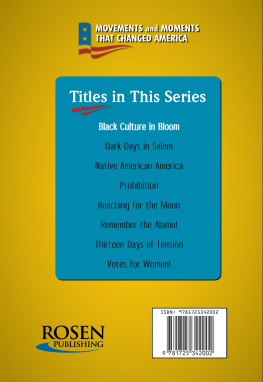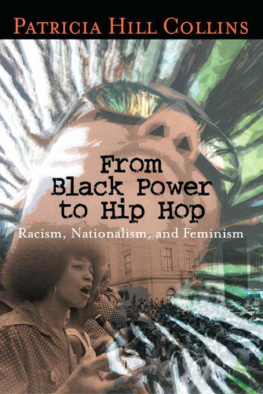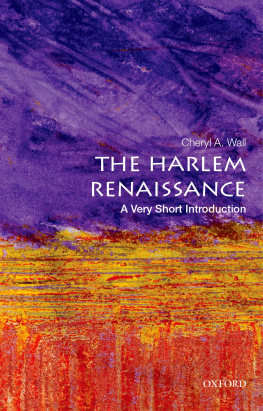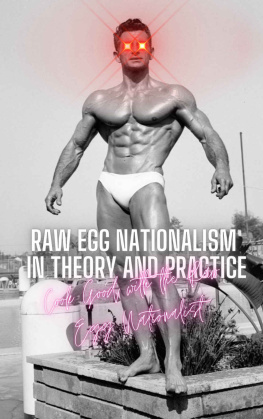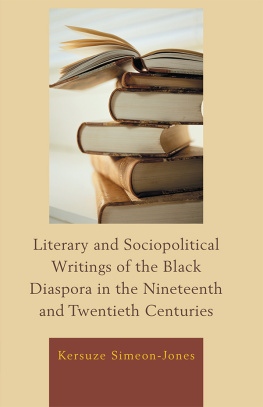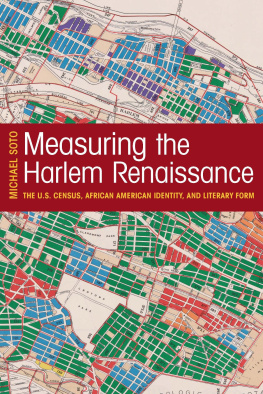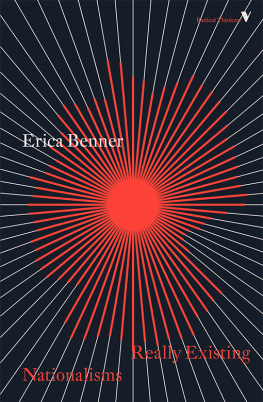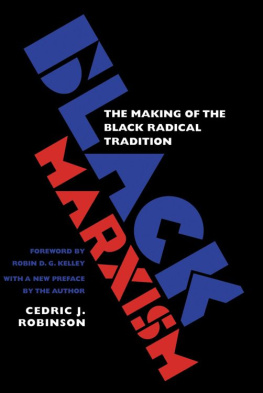Nationalism, Marxism, and African American Literature
between the Wars
Nationalism, Marxism, and
African American Literature
between the Wars
A NEW PANDORAS BOX
Anthony Dawahare

Margaret Walker Alexander Series in African American Studies
www.upress.state.ms.us
An earlier version of chapter 5 was published as Langston Hughess Radical Poetry and the End of the Race in MELUS 23.3 (fall 1998). An earlier version of chapter 6 was published as From No Mans Land to Mother-Land: Emasculation and Nationalism in Richard Wrights Depressionera Urban Fiction in African American Review 33.3 (fall 1999).
Copyright 2003 by University Press of Mississippi
All rights reserved
Manufactured in the United States of America
11 10 09 08 07 06 05 04 03 4 3 2 1

Library of Congress Cataloging-in-Publication Data
Dawahare, Anthony, 1961
Nationalism, Marxism, and African American literature between
the wars : a new Pandoras box / Anthony Dawahare.
p. cm. (Margaret Walker Alexander series in African
American studies)
ISBN 1-57806-507-0 (cloth : alk. paper)
1. American literatureAfrican American authorsHistory and
criticism. 2. Nationalism and literatureUnited
StatesHistory20th century. 3. Communism and literatureUnited
StatesHistory20th century. 4. Socialism and literatureUnited
StatesHistory20th century. 5. Black nationalismUnited
StatesHistory20th century. 6. American literature20th
centuryHistory and criticism. 7. African AmericansIntellectual
life20th century. 8. African AmericansPolitics and government.
9. African Americans in literature. 10. Black nationalism in
literature. 11. Politics in literature. 12. Race in literature.
I. Title. II. Series.
PS153.N5 D34 2002
810.9896073dc21 2002006910
British Library Cataloging-in-Publication Data available
To Tillie Olsen and her generation of activists from the 1930sstrong with the not yet in the nowwho struggled tirelessly for an egalitarian world free from racism, sexism, and class oppression.
To my children, Wyatt and Hannah, who have better worlds to make.
Contents
Afterword: Beyond Twentieth-Century Nationalisms
in the Study of African American Culture
Acknowledgments
I would like to thank Barbara Foley for her careful reading of the manuscript; her insights helped to refine several ideas on both African American literature and the interwar American Left. Thanks to Joseph Skerrett, former editor of MELUS, who published an earlier version of
Introduction
Every minority and suppressed group seeks self-expression. Woodrow Wilson let off the lid of a new Pandoras box when he so eloquently preached this doctrine as the shibboleth of the war. The Negro seeks self-determination also.
Kelly Miller, The Harvest of Race Prejudice (1925)
Hopelessness is itself, in a temporal and factual sense, the most insupportable thing, downright intolerable to human needs. Which is why even deception, if it is to be effective, must work with flatteringly and corruptly aroused hope.
Ernst Bloch, The Principle of Hope
Marxism and nationalism constitute two of the most influential ideologies of the last century. They have generated many cultural and political movements worldwide and have radically transformed conceptions of self, culture, and society in the modern period. The goal of this study is to evaluate the great impact of Marxism and nationalism on a relatively small segment of writers from the twentieth century, particularly black writers from the Harlem Renaissance and the Depressionera proletarian literary movement. Living during those tempestuous years of economic crisis and war, many black writers found common cause with nationalist and internationalist ideologies and movements that spoke to their own desires for social equality. The new Pandoras box contained the hope that self-determination was still possible, in spite of the many disappointments bred by a history of slavery, segregation, and racism. Indeed, the twenty years between the wars were two of the most politically productive and culturally rich decades of the twentieth century for African American writers.
Yet, like the old Pandoras box, the new one also contained a mess of social evils that were set free during this period, and not only by Woodrow Wilson. My principle argument in this book is that the spread of nationalist ideologies and movements during the interwar period, culminating in the Nazi genocide, functioned for a time to divert the legitimate political desires of many black writers for a world without racism along channels that did not throw into question the capitalist foundation of modern racism. Seduced by the promises of the ethnic nationalism of the period, most Harlem Renaissance writers replicated in their literary work many of the pseudo-scientific notions of racial and national identity that capitalism had used since its inception in the United States to deflect attention away from the class basis of exploitation and inequality. I also argue that the strongest black writers of the period are precisely those who did not heed the call of nationalism and were, on the contrary, receptive to the internationalist ideas of the American and European Left. Understanding that receptivity implies availability, I demonstrate that it is during the Red Decade that black writers developed some of the sharpest critiques of nationalism. Black Communist writers, as well as their white comrades (most of whom are out of the purview of this study), historically anticipate a growing body of contemporary scholarship that reveals the intellectual vapidity and political hazards of nationalism, especially its ability to generate feelings of grandeur in return for the working classs cooperation in an exploitative peace or an imperialist war. This study, therefore, challenges a reigning paradigm in black literary studies that privileges the cultural nationalist writings of the Harlem Renaissance as the most relevant literature of the interwar period.
While I work to demonstrate the dominance of nationalism in the 1920s and Marxism in the 1930s, I also address the ways in which these ideologies coexist in the movements of both decades. That is, on the one hand, throughout the interwar period, Marxism and nationalism confront each other as antagonistic phenomena. Nationalistic texts of the 1920s polemically engage those of Marxism, while Marxist texts of the 1930s engage those of nationalism. On the other hand, we also find combinations of the two ideologies at play in each of the two cultural movements under consideration. We will discover the influence of socialism in the Harlem Renaissance and nationalism in the proletarian literary movement. Marxism and nationalism, in short, belong to an overriding and complex political dialogic of the modern period.
This book is divided into two parts. Renaissance, centers on the principle of ethnic nationalism that underwrote World War I, the peace settlement, and the Harlem Renaissance. In individual chapters, I address 1) the postwar movements of and highly-charged debates about black nationalism, socialism, and Americanism in the United States; 2) Alain Lockes New Negro anthology, which masterfully intervenes in these debates by defining the New Negro in solely nationalistic terms; and 3) the complex ways in which literature of the Harlem Renaissance participates in the dominant nationalistic rhetoric of the period. The triumph of postwar nationalism is encoded in many ways, from overt calls for a black nation, to the trope of national awakening, to the recuperation of folk traditions and an immemorial past. Characteristic of ethnic-nationalist discourses, a number of black American postwar texts assert the existence of an innate racial quality in those of African ancestry and represent the New Negro as the culmination of a long historical process of coming to consciousness of a special destiny. Even the decision to create racial/national narrativesa practice dating back to the eighteenth centuryreceives a fresh impetus from the emergence of so-called new nationalities with the breakup of the great prewar empires after the war. I contend that the constructions of national identity by these black writers are both the products and reproducers of modern nationalism. As Timothy Brennan argues, Nations ... are imaginary constructs that depend for their existence on an apparatus of cultural fictions in which imaginative literature plays a decisive role (49). Indeed, many texts from the Harlem Renaissance continue to nationalize their readers by presenting race pride and Americanism as the natural and therefore primary way to identify oneself and ones loyalties.
Next page

